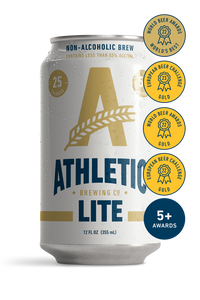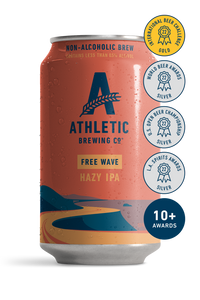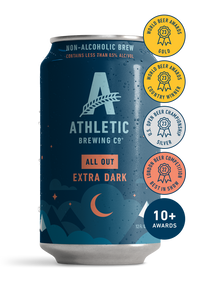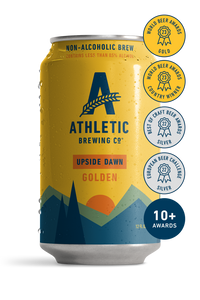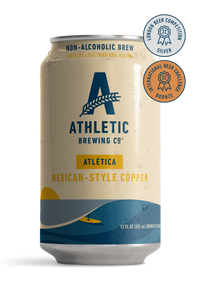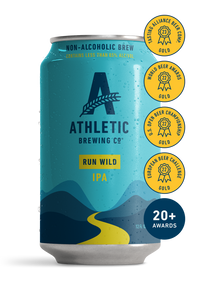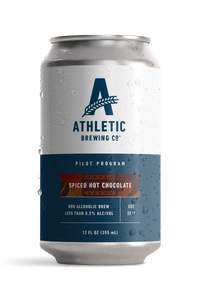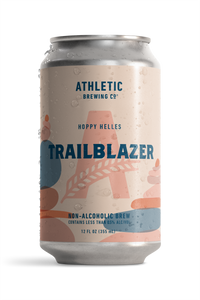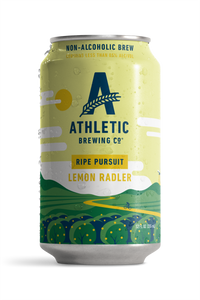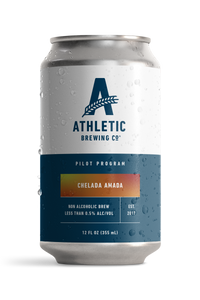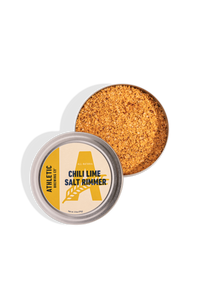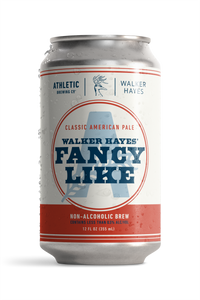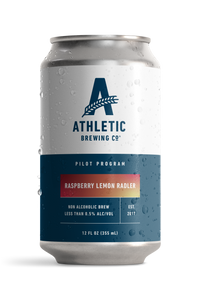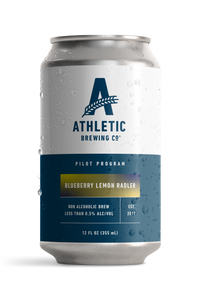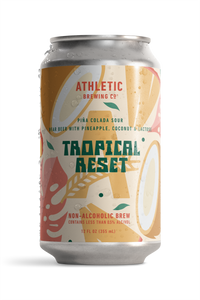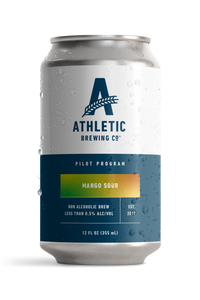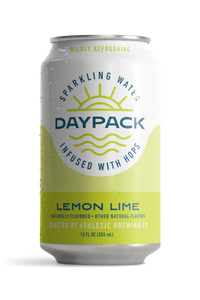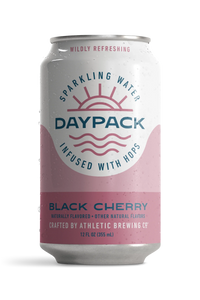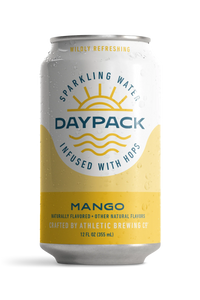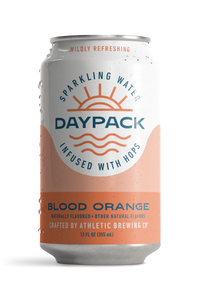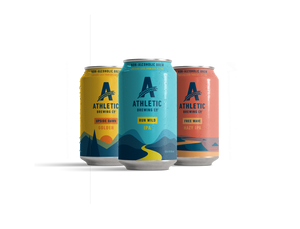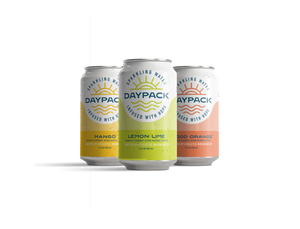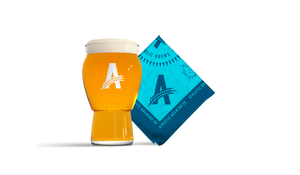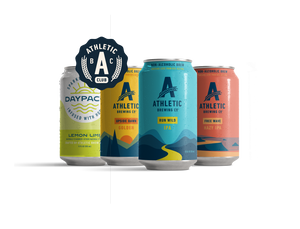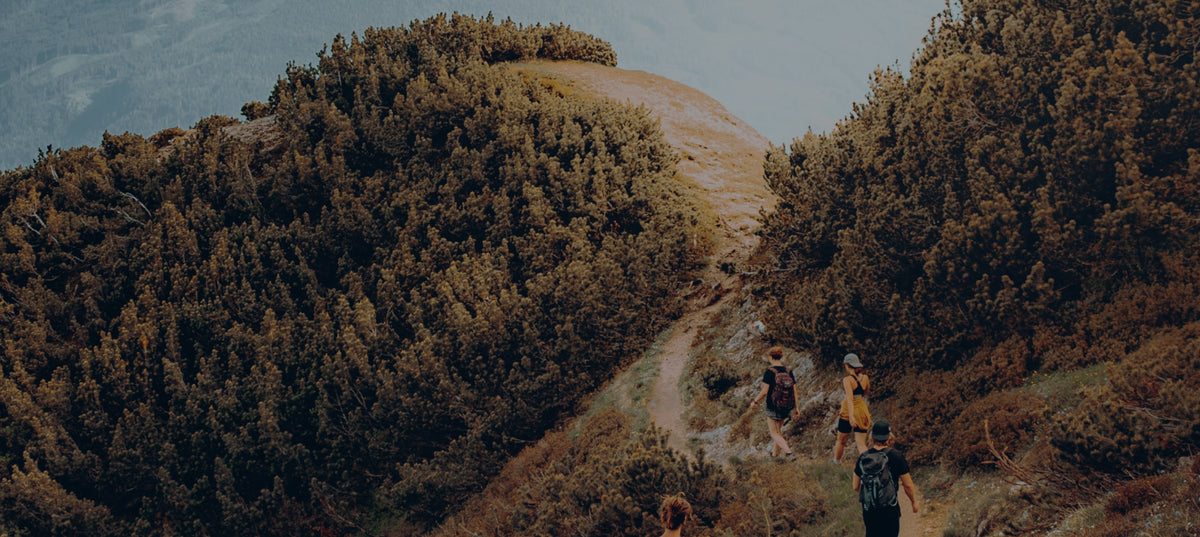
“It’s not just about doing wicked good in your everyday life and the 1% mentality. It’s, OK, now take that back to your community and do wicked good by giving back, volunteering, giving money, and creating a better, positive experience for others.”
Don’t just do good. Do Wicked Good.
That’s the tagline Josh Vernon lives his life by.
And he’s not the only one.
With his nonprofit-supporting organization Do Wicked Good, Josh Vernon and those who believe in the cause have changed countless lives, from children in hospitals to families across New England brightened by an unusually large tip at the table they’re waiting.
“Anything you do in life, whatever you’re doing, don’t just do good, do wicked good. Give that extra effort,” Josh says. “It’s not just about doing wicked good in your everyday life and the 1% mentality. It’s, OK, now take that back to your community and do wicked good by giving back, volunteering, giving money, and creating a better, positive experience for others.”
Aside from the Do Wicked Good community, Josh also enjoys creating change in other groups. He’s the leader of a Peloton community dubbed the Wicked Smaht Zone; the group focuses on power zone training with Peloton bikes and has grown way beyond its original intent. He’s also involved in several other communities, weaving in as much as possible between family time, training and work.
His most current goal is racing Athletic Brewing IRONMAN 70.3 Oceanside alongside a team of ambassadors on Team Athletic. It will be his first long-distance triathlon, but he’s champing at the bit to get out there and give it his all. Regardless of what happens on race day, Josh knows the changes he’s made in his life have all led to a happier, healthier version of himself.
Read on to learn more about Josh and how he tries to Do Wicked Good on a daily basis.
***
Tell me a little bit about yourself, and how fitness and sports came into your life.
Fitness and sports were always part of my life growing up. If I wasn’t studying, I was playing sports, always doing something: Soccer, basketball, baseball. Growing up, we had a pool in our backyard. I was the oldest of 3 boys, so we were always competitive among each other, and we lived in a really cool neighborhood where everyone came over to our house and played in the backyard.
I played soccer in college – I was a goalkeeper at Virginia Tech for a year but broke my leg, and that ended my soccer career. I played men's league and pick-up stuff, but I started to party too much, and then I met my ex-wife. We didn’t do much athletic/fitness stuff – we went the social route.
So for like 20 years or so, I just kind of went through the motions: went to work, did the family thing, took care of my daughter. We moved to the U.S. Virgin Islands for 3 years chasing a dream, but life kind of separated us. After two major category 5 hurricanes (Irma and Maria), that was a wake-up call for me. It was a pretty damaging experience, I lost a lot of stuff and my marriage was over. But it woke me up to what else was out there.
I moved back home with my backpack and my dog. Luckily, my daughter was going to school in the states at that time. I started to put my life back together in January 2018. I met my now wife Jenene in May of that year; she led a very active and healthy life. When COVID hit, I started to workout. I did a virtual 12-week challenge online with a bunch of friends from the Virgin Islands, and it ended the week of our wedding. It got me back in shape. I enjoyed it because it worked in the form of giving me a target, a goal to reach. I’m a firm believer in putting myself out there to give something my best and if I see results, then sticking to it.
I was in the best shape of my life at that point. I started to enjoy running. We went for runs on our honeymoon instead of going to the bar. Along the way, I completely stopped drinking. That just changed everything. I enjoy talking about it, too, because I see the people who have reached out to me. It’s really inspiring to me to see others wanting to do something different as well. I’m not just a sober guy; I’m a sober guy who changed his life.
So the fitness journey continued. We got a Peloton – that changed everything. I used to tell my wife it was a “fake workout,” but when I got hurt and couldn’t go running, I got on the bike. Now I’m in a Facebook group of over 2,000 Peloton fans in New England. I go there a lot to train and have really gotten to know the instructors.

It’s kind of awesome how removing alcohol from your life can open this door to a whole new area of your life that you never knew existed, or never really imagined was possible. You close the door on drinking, and so many more open in front of you.
There’s so much stuff that’s come up in the last 4 years. On the monetary side, I’m saving so much money. And I smoked even after I quit drinking. I finally quit smoking cigarettes the day that virtual fitness challenge started. That changes a whole different aspect monetarily as well. So for me, to have the money and put it elsewhere was what I'd always wanted. This is who I always was deep down, who I always wanted to be, I just get to do it now. That’s the part that people can hear – the passion in my voice.
Tell me about Do Wicked Good and the premise behind starting that.
When I started riding the Peloton, I joined the Power Zone Pack community for power zone training challenges. I really liked that type of training,but didn’t know anyone on my virtual team. That’s where the Wicked Smaht Zone idea came about. In early 2021, we formed the group. With my background in community building and philanthropy, we also began raising money for different foundations within the group. We decided to do a gathering as COVID waned a bit. We got together for breakfast, and the idea was, why don’t we just bring some money to leave a big tip.
People in the group who couldn't come started sending money to chip in too. All of a sudden my Venmo account started to blow up. I think I took out almost $3,000 from people who weren’t even coming. Twenty-one of us went to eat breakfast and left a $3,600 tip on a $350 breakfast bill at a local restaurant in Mendon.
A news channel called me a week later to do a story. It was a family-owned restaurant, and the two women that waited on us split the tip with the restaurant staff. We had no idea; we just left after leaving the tip.
That weekend I started getting more calls and texts from news channels. Then Peloton picked it up and tweeted it. The story started to go viral about giving back. One of the newscasters said our tagline (which was “Train hahd, train smaht, and have fun while you do it”) was “Train hahd, train smaht, and do wicked good.” I said, that’s not my tagline, but it is now!
We bought the website that night. Jenene came up with a logo, and we put together some merch. We did a shirt fundraiser, and the money went to our Pan-Mass Challenge team.
The whole concept behind Do Wicked Good has changed over time, but the crux of it has stayed the same. Anything you do in life, whatever you’re doing, don’t just do good, do wicked good. Give that extra effort. It resonates with everyone I talk to. It’s not just about doing wicked good in your everyday life and the 1% mentality. It’s, OK, now take that back to your community and do wicked good by giving back, volunteering, giving money, and creating a better, positive experience for others.
That’s the focus of Do Wicked Good: Now we have to do something with it. I had come across the Melwani family and started following them on social media. During an event at Reebok, I connected with Gordie Gronkowski, whose booth was next to mine thanks to the event organizer Kaitlin McDonough. Gordie then connected me with the Melwani family.
They have a foundation that they’re tapped into called Spread the Joy, whose mission is to get a “Joy Box” in the hands of every pediatric patient in America and eventually the world. The box is curated by doctors and physicians, so a lot of thought goes into what these patients need. They have packing parties at people’s houses.
I came up with the idea of hosting a big packing party in Boston. We came up with the concept of putting some teams together and making a little bit of a competition of who could raise the most money. Our goal was to pack 1,500 boxes.
We more than covered the cost of the boxes and supplies. There were boxes delivered to 1,500 children, mostly in the Boston area, but kids all over America ended up receiving Joy Boxes from the Spread the Joy Foundation.
It was really cool to watch 40-something celebs and influencers come together: radio personalities, cheerleaders from the Boston Celtics, people from all walks of life, setting up an assembly line, packing a Joy Box. It was really motivating to watch that aspect of it. There’s one thing about volunteering, or donating money, and that’s really cool, because you know it’s going somewhere good, but to actually have your hands on the goods and be a part of knowing what these children are going to get to experience …

Now that you’ve rediscovered fitness and had this whole new life unfold in front of you, let’s shift to IRONMAN 70.3 Oceanside and your goals for the Team Athletic race on April 1. Why did you want to do this race, and what challenge do you foresee on race day?
My youngest brother asked me if I wanted to do the Cohasset sprint triathlon last summer. I got a wetsuit, started doing some research, and I found a program to train for 8 weeks.
Swimming, biking, running, all together and balancing it out, I enjoyed that whole aspect of it. It gave me a little bit more structure (to my training). Getting up at 5 o’clock in the morning is no fun, but when you’re done at 6:45, wow, that’s a really cool rush and you have that adrenaline kick for the rest of the day. So I trained really well and felt good going into the race. I bought a bike.
I had never done any sort of road race up until that point. I forgot to check my tire pressure the morning of the race. I got through the swim, got to the bike, got set up quick, out of transition, started going, then all of a sudden people started passing me. I thought, I should be doing better than this on the bike! Because most of my training is inside, I said I guess this is just the course.
I got to the run, and it was a pretty easy transition, but my legs were dead. Again I was like, I guess this is what it’s like. I got through the run in about an hour and 20 minutes. I felt good about it. My brother finished 5 mins ahead of me.
A week later, I went riding with some of my buddies and they were like, why can’t you keep up with us? We got to the first red light, they checked my tire pressure, and it was like 35 psi. So I raced with both tires flat, pretty much.
After I finished that race, I said I’ll never do a half IRONMAN or an IRONMAN, there’s no way. And then I found out my tires were flat. At the same time, it was around that same time I became an Athletic Brewing Ambassador. [Athletic] threw out the IRONMAN opportunity. I was already in love with the program, and I had just seen all these people go to Spain and do a full IRONMAN … I can’t do that … but I can do a half!
Sprint tri is a different mentality. IRONMAN races are more about, can you get through the mental aspect and the endurance side of it. It’s a slower pace, but you build yourself up to get to the finish line. So I applied [for Team Athletic]. I found TriDot training, and they had a 2 month training program for free.
Having flexibility and having the Peloton has been huge for me. That’s another test I'm doing – can I train on a Peloton bike? My FTP and my power on the Peloton might not relate exactly to what it is outside, but I know how I feel and what my heart rate should be. So I'm probably going to do the race [based on] heart rate. We’ll see. I just know that I’ve done everything they’ve asked minus getting in the pool as much as I should have.
For Oceanside, I just need to be able to get through the swim, get to the bike, and I'm gonna enjoy it. I have some goals: I definitely want to finish in under 6 hours. We all know anything can happen on race day. If I don’t feel like pushing it that day, I still know that I’m going to be in very good shape. No matter what, I just want to get to the finish line.

What have you learned about yourself through all this training?
There’s a limit that I didn't know I had. When you get into this 70.3 IRONMAN training, it’s not like going to the gym and getting a workout in. There’s plenty of those sessions, but the mental aspect of going longer is what I think you’re training. I’m training my brain on how to get through a day that might not go well. Or your brain talks a lot of sh*t to you. You gotta turn it off and remember what you’ve done to get there.
For me, having a set schedule, and knowing that that works has been helpful. You can get through it if you flip the mentality correctly and believe in yourself and believe in your training. That’s been the part I’ve learned the most about myself and how I can get through some of those obstacles. Come race day, if something goes wrong. I know that it’s something I can get through. In training, every time I thought I needed to go slower and I pushed through, I made it. You can.
If I hit my goal, that’s a pretty good time. I know even if I come in a little slower, that’s good too. I never thought of myself as an endurance athlete, and now I’m pissed I didn't know it when I was younger.

Your Peloton community is extremely important to you. Tell me about that, and how you came to find a second home there.
I mentioned earlier that it was that “fake workout” that my wife did when she got on the bike ... I was this new guy doing all my HIIT cardio and bodyweight strength training, and then I got hurt shoveling snow and couldn’t run. I got on and tried the bike. I did this crazy, 45-minute workout, and I loved it. Having the trainer right there, the coach – at that time we couldn't go anywhere, and I started to use it more and more.
Then I found power zone training. It wasn’t just getting on the bike. Listening to these amazing instructors – I was training when I wanted, on demand. Then, throw in running and being able to go outdoors and listen to the classes, or doing strength training, yoga, meditation: Every aspect of what they offer is really cool.
I joined the Power Zone Pack, an online community of people who do power zone challenges. I did my first challenge in January 2021. I was put on a team with random people and we had our own little Facebook community. People would post their rides and talk about their “Pelo pets” and different things like that to keep the engagement up. I knew one person out of over 200 people, and I knew I could find other people in the Boston area to start our own group.
In two days, I had 250 people join our Wicked Smaht Zone group, and it’s grown ever since. It’s become way more than just a power zone team. All these people who couldn't do anything but virtual challenges at that time now had a reason. We all had things in common: We talked the same, had the same mentality. It wasn’t just a challenge team anymore.
We created a logo, got some shirts printed to raise money for a lady on our team who has a lung cancer foundation because she’s a 15-year survivor. That was our first charity that we picked to do some fundraising. That’s the whole mindset behind Peloton and what they wanted [the groups] to be.
The first ride they did after COVID when the studio opened, Peloton sent me an invite, inviting 14 people from the Wicked Smaht Zone to do the first ride post-COVID. So 14 of us went to New York for a 30-minute power zone ride live in the studio. We all had our shirts on. It was a really cool experience.
We keep doing all of this fundraising with the Wicked Smaht Zone. We planned our second breakfast tip this year, leaving a $4,600 tip on a $280 bill at a restaurant in Plymouth, Mass. We found out the money went to two waitresses who were both single moms with rent due, and the money was the biggest gift that they’ve ever received. By chance, it happened to go to people who needed it, deserved it, that was really cool to hear. Peloton instructors were [sharing] the story.
When it comes down to it, the core community is the part that I truly love, and the training aspect has kept me coming back.

How did you find Athletic Brewing and the ambassador program?
It was pretty simple for me. I was training for the Cohasset Triathlon, doing a lot of research on Instagram, and I came across [Athletic Brewing Ambassador] Hunter Ralston. I started seeing her stories and her ambassadorship and promotion, and then I found out she was in New England.
Because of what we do with the Wicked Smaht Zone, we wanted her to come to our community to promote Women on Wheels. She joined the Facebook community, and we started to chat a bit. She said you should join the Athletic Brewing Ambassador community, and that was that. I got that cool email from you guys, and I was pretty psyched. Thank God we had just got a new fridge – that gets used a lot!
What are some of your proudest achievements?
My daughter. Watching my daughter grow and become a young woman through the things that she likes to do. They don’t have to be sports. She goes to an agricultural vocational school because she’s passionate about animals and wants to get into something related to animals in her career. Just being able to be a part of that with the way I’ve changed my life has been huge.
And being able to wake up every morning, being happy to know what I've done the day before, and having a life to be proud of. I know I can always do something a little different, a little better, but that’s what I’m living today for. Everything Jenene has brought to my life has given me the ability to do all of these things. We’ve been together for five years now. We got married in the middle of COVID and bought a house in my hometown. I never thought I’d live in my hometown again.
I would’ve never thought this is where I'd be. Now, it’s about just taking it all in and running with it.

Do you have any bucket list races, events or achievements that you’d like to attain one day?
I haven’t done a marathon and I live in Boston. Naturally that’s gonna be at the top of the list. To do that after all the things I've done but for me to not do it would be a gap. From there I’ll think about the next thing. I don’t think full IRONMAN is on the table for a while because I have to put the time in to train and I don't have that. I’ve made this [training for Oceanside] work. Training for a marathon is a lot of work too. My daughter’s a freshman in high school, so I’m at that point now where a lot of those things are going to open up naturally as she grows up. No doors are being closed, that’s for sure.
What’s your favorite recovery food?
Slate Milk, and I’ve really enjoyed Tirobar protein bars, but then it’s usually peanut butter cup ice cream. This IRONMAN training allows you to eat a little bit more. I tend to have a bowl of ice cream a couple nights a week.
What do you like to do on rest and recovery days?
I believe in compression therapy. So I’ve been good about using compression boots. Jenene and I are trying to get out and do more walks and simple stuff. Just getting outside in nature and walking. [Rest days] are a big family day too. We try to schedule things around that to make sure we can do our family trip days. And sleeping. Trying to sleep as much as possible. The Whoop yells at me a lot …

What gets you up and out of bed every day?
Life in general. These days I’m not injured, so getting up and getting out of bed, I've got something to do. I'm a firm believer of putting something on your calendar, whether it be a 5K or a town cleanup or whatever – just put something on your calendar that you have to look forward to. When I have something on my calendar, I'm going to do whatever I need to do to be ready and get there.
Right now I have Oceanside, and then I have events after that. That gets me up every day. That, and just being able to enjoy the day with my wife and daughter. We love to travel and plan trips and go new places. We have a map on our wall that has tacks of places that we want to go and places that we’ve been together. We’re trying to eliminate a bunch of places that we haven’t been to yet.
What does Fit for All Times mean to you?
It’s pretty simple. For me, it’s being ready to go, ready to do what I need to do whenever I'm called on. I don’t have to be concerned [about the future]. I can be fit for all times because when I have an Athletic brew – I know I’m still ready to go. It doesn’t matter what time of day, what day of the week. I’m ready. I’m fit.
If you’re interested in joining the ambassador program, visit our Ambassador Community Page and sign up to be notified when applications open!
